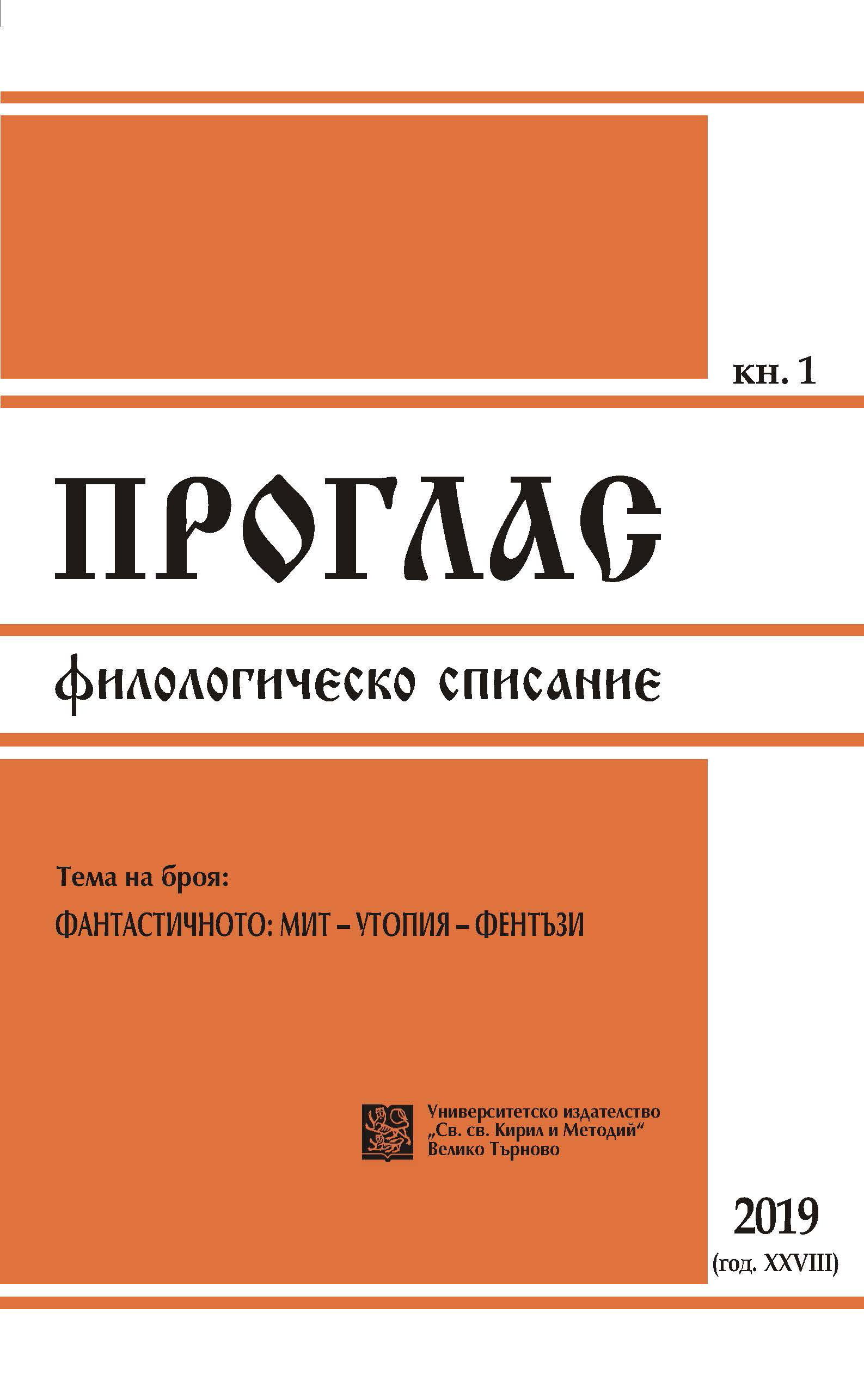
We kindly inform you that, as long as the subject affiliation of our 300.000+ articles is in progress, you might get unsufficient or no results on your third level or second level search. In this case, please broaden your search criteria.

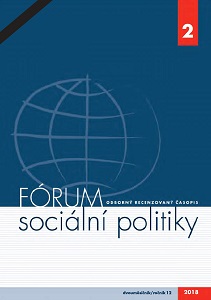
Air pollution often represents a key factor of emigration from highly damaged regions. As the propensity to migrate increases with the achieved level of education and income, the regions with a huge ecological issues may experience „brain drain„ affecting their future perspective. Therefore, this paper focuses on differences in perception of environment in Ostrava city among „brains„ with different migration plans. Data on 2,203 employed people with university degree, who lives in Ostrava city, were used for this purpose. The results show that individuals planning to move out of Ostrava are significantly less satisfied with the quality of the environment.
More...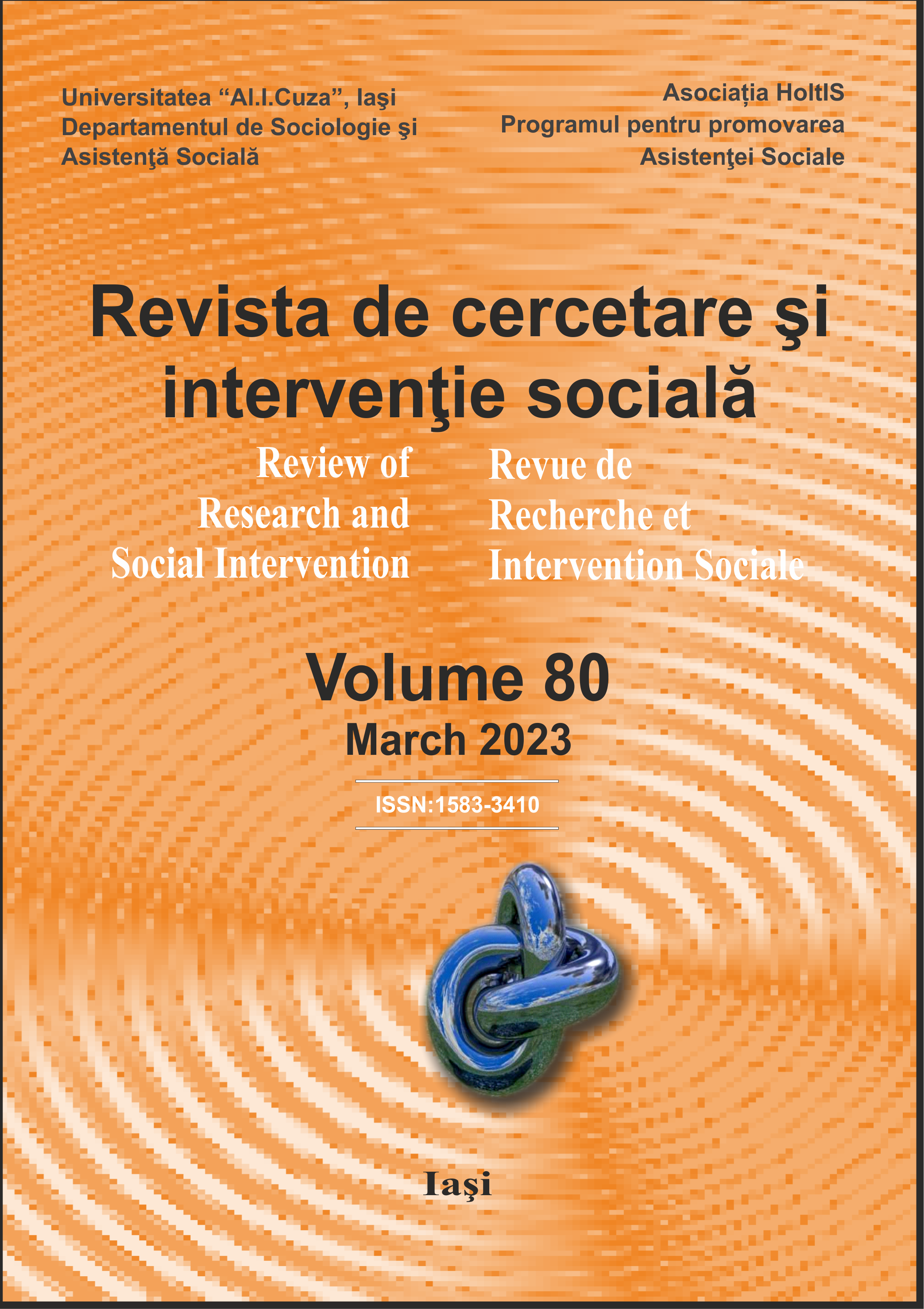
The coronavirus outbreak has significantly affected the health and well-being of several people around the world. In a similar vein, Bangladeshi medical professionals have also been affected by several severe physical and mental health complications resulting from their frequent contact with COVID-19 patients. This exposes them to a greater risk of infection with the lethal virus, which can substantially impact their job performance. Therefore, this research aims to investigate the manner in which the COVID-19 pandemic affects the occupational health and safety of medical employees. The researchers deployed a descriptive qualitative technique to investigate the complexities of the COVID-19 crisis amongst medical practitioners. Employing purposeful sampling and in-depth interview techniques, the researchers collected data from a total of 32 healthcare professionals and investigated their state of occupational health, their exposure to stress and trauma, and the effects of stress and trauma on their livelihood, health and well-being. The data revealed the occupational health of healthcare workers as being fragile, resulting to stress and trauma, and eventually, a depressed state of mind. To address this issue, relevant government and non-governmental organizations should concentrate on reducing COVID-19-related risks and repercussions in hospital settings. In addition, policymakers, social workers, public health practitioners and psychologists must work together to ensure that healthcare workers are healthy and safe at work.
More...
The global climate crisis poses an existential threat to the natural ecosystem and the entire humanity, while new effects (Covid-19, war in Ukraine, etc.) and factors increase the risk to national security and public stability in the EU countries and beyond. The most important global challenge of our time has prompted the formation of climate change management policies around the world; international agreements have been concluded for this purpose. In 2015 the Paris Agreement was signed and the United Nations General Assembly approved the United Nations Agenda for Sustainable Development until 2030. The goal 13 "Take urgent action to combat climate change and its effects" and tasks for the implementation of this goal were established and approved by the EU legal acts. The European Green Deal was initiated to define the EU's vision of creating a climate-neutral economy by 2050. Those interested in climate change and the green course often raise the question of whether everything possible has been done to prevent (stop) or eliminate climate "erosion" processes. To climate change sceptics, these documents or efforts may seem excessive (and expensive), but it is important to determine whether the full-fledged, comprehensive or targeted communication is available in the EU, whether the dissemination of public information about the processes of the green deal is sufficient and what the management of this information entails. This is because information management is one of the most important components of the successful implementation of the Green Deal. The supreme audit institutions of the EU countries conducted assessment of EU countries in preparation for the implementation of the Sustainable Development Goals (SDGs). The assessment of the public's knowledge and understanding of the EU green deal was performed using a uniform, approved and generally accepted control model. The article aims to analyse the role of information management in implementation of the Green Deal in the EU and the US by distinguishing the 2020-2022 period of global COVID-19 pandemic based on a Lithuanian case study.
More...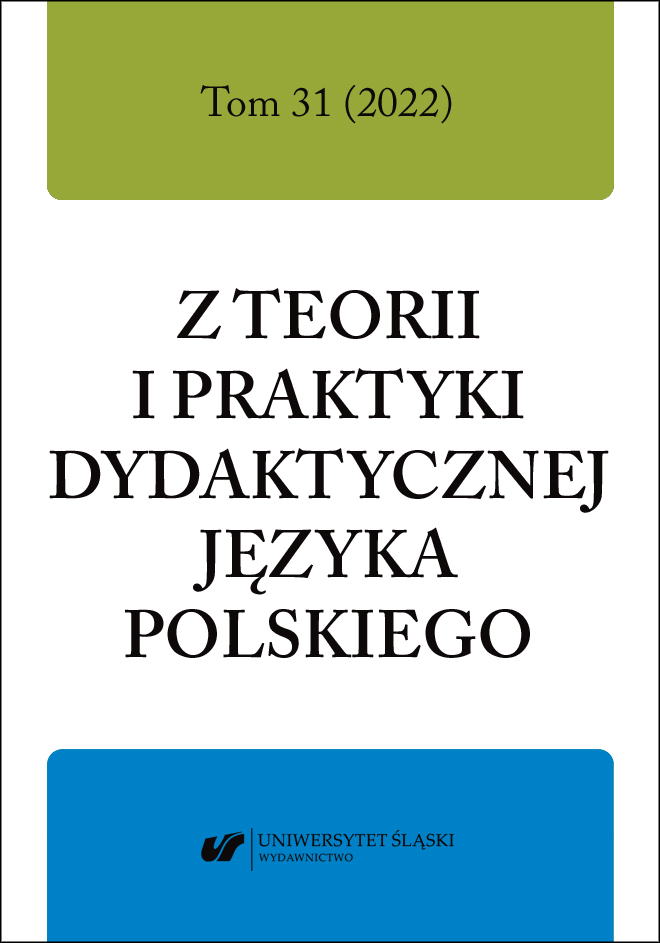
Zuzana Obertová presents the term climate fiction and points out its relationship to science fiction. She draws attention to the problem of reducing the idea of climate fiction to a type of genre literature. She gives examples of climate fiction by Polish and Slovak authors and presents ecocriticism as a research method for climate fiction as well as climate change literature in a broad sense. She sums up the state of ecocriticism in Poland and Slovakia.
More...
This article describes some attempts at answering the challenges of the present in connection with the commonly perceived climate changes, unfavourable for the Earth’s environment, and the need to shape attitudes of responsibility for the quality of the common good. The author presents the possibilities of introducing various pro-ecological content in the academic programme of prospective Polish language teachers. First, she briefly discusses the theoretical bases of ecocriticism, then indicate some possible interpretations of selected literary texts during high-school classes, and present social projects aimed at promoting a change hitherto people’s lifestyles.
More...
The paper discusses the possible reading of Bruno Schulz’s story called “Sierpień” [August] at school in the context of Leszek Onak’s e-text entitled “Cierniste diody” [Thorny diodes]. The author of the article suggests a need to introduce the latest literature to Polish language lessons. She shows the ways of taming the difficult text of Bruno Schulz and e-literature. The main idea of this interpretation is based on showing the difference visible when the two worlds presented in both narratives are juxtaposed (the garden, the character of Tłuja). In this way, it presents a relation between these two ways of telling about a man and his surroundings and also shows the relationship between man and nature.
More...
This article presents the potential for using the elements of ecocriticism and climate education in Polish language classes at primary schools. Using materials from the textbook and original ideas, the author presents practical didactic solutions, which make it possible to build environmental awareness among students. The literature and language lessons, together with the ecological project discussed in the article, focus on the reconstructing cross-curricular dialogue in school practice. The digital tools proposed by the author are in line with the eco-trend, which is more and more visible in education nowadays.
More...
The paper discusses film education issues in the context of educating on climate. The authors focus on tracing the presence of the concepts of environmental humanities and ecocriticism in educational materials by selecting two lesson projects related to films. In the first part of the paper, the authors give a broader perspective on the theoretical context; in the second and the third part, respectively, they comment on the lesson projects concerning Aga (the New Horizons of Film Education program) and The Biggest Little Farm (distributor’s proposition published on www.edukacjafilmowa.pl).
More...
The paper presents the necessity of implementing ecolinguistic topics into L1 teaching. It takes Instagram posts of Czech, Polish and Slovak influencers as an example and shows that manipulation techniques overreach the boundaries of countries and languages. If we accept the thesis that manipulation is dominantly a non-ecological phenomenon, which threatens the life of wider ecosystems, the reaction of school is inevitable, especially because children and youth form a highly vulnerable group.
More...
The article is aimed at providing the theoretical background for the foreign language (ESL) environmental education, which is sought in the early manifestations of the environmental movement, as well as presenting the main assumptions of ecological criticism as a benchmark for the educational practice whose major objective is to instil environmental awareness in students at the time of the climate crisis. The second part of the paper includes an analysis of environmental contents in Polish schoolbooks used in the ESL classroom at intermediate and advanced levels. The authors’ decisions regarding the presentation of ecological topics and climate change issues are then investigated in terms of its compliance with ecocritical claims and its support of activist and emancipatory attitudes. The analysis seeks to indicate the best methods and ways of pursuing critical environmental pedagogy which would be able to rise to the challenges of the Anthropocene.
More...
Ewa Półtorak’s aim in this article is to reflect on how to incorporate elements of ecological education into the foreign-language teaching / learning process, as implemented in the third level of the Polish education system. Półtorak focuses on methods used to develop communicative language competences at school, especially on the example of teaching / learning French as a second / subsequent foreign language.
More...
In her article, Anita Račáková analyses how the Slovak State Educational Program for the 2nd level of primary schools incorporates topics related to climate, or, more precisely, to issues of the environment and its protection. Račáková enquires whether these topical issues have been addressed in the Program, in which educational areas and subjects they are handled, and in what form and to what extent. Her analysis shows that ecological and climatic topics have a dual status in programs for the 2nd level of primary schools. They are part of compulsory extracurricular education in the areas of Man and Nature, Man and Society, and the optional cross-sectional subject Ecological Education. These topics are also incorporated into the educational areas of Man and Values, Language and Communication, where they are used as a tool for developing the personality of students.
More...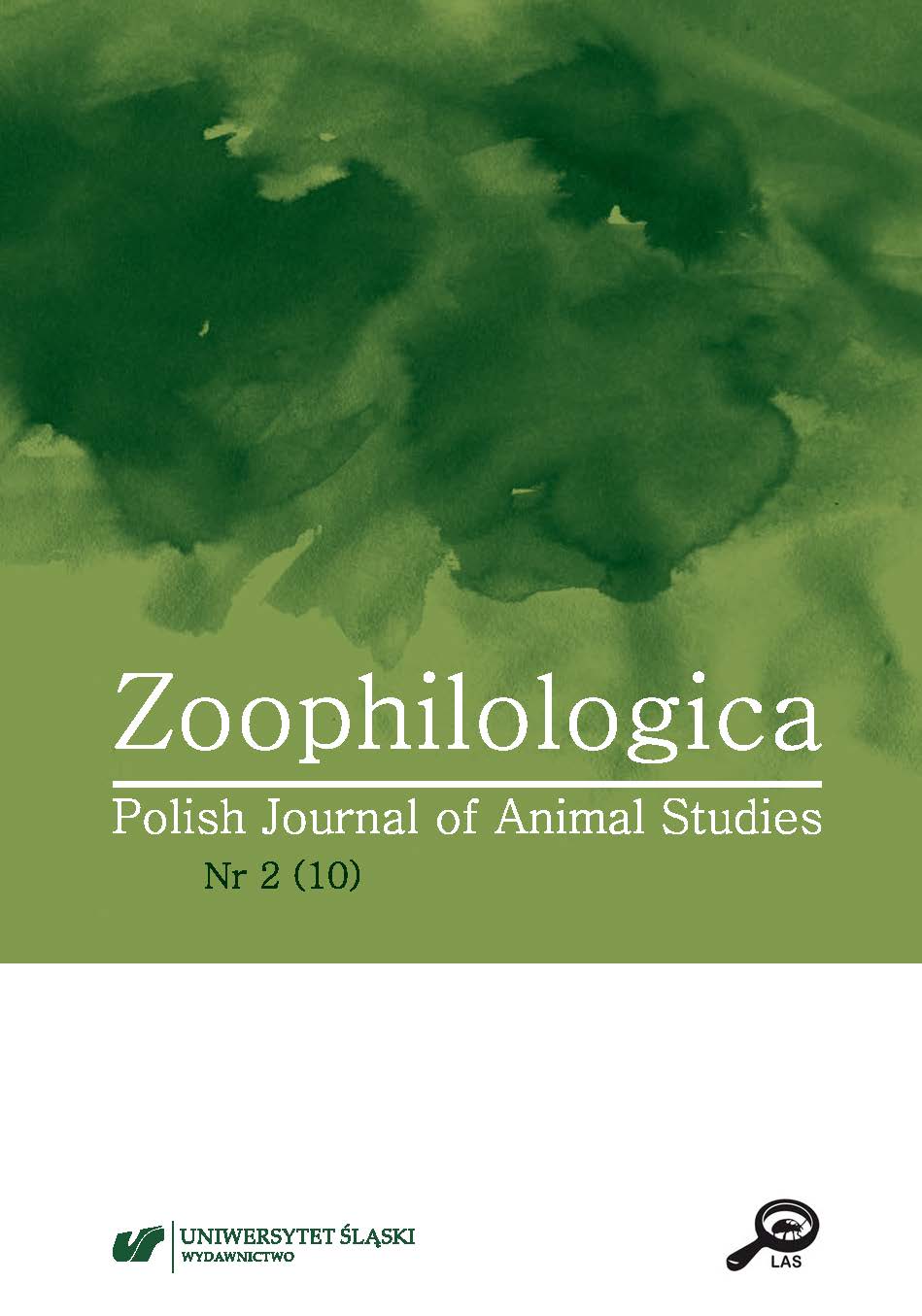
A widely publicized IPBES report from 2019 warns that close to one million species currently on Earth will soon be extinct. In addition to debates in the media and among professionals about the factual value of that number, a larger problem remains—we do not know how many species are on Earth. According to extensive studies and statistical modelling, there are at least six million species in existence that have not yet been described. The term “described species” means that the animal or plant has received a unique scientific name that confirms its identity and relation to other organisms. A question thus remains about how we value species that are not yet named, known, or discovered. The most common practice is to value only creatures that are directly related to human existence, yet there is growing concern that we should value animals for the sake of their existence, for their intrinsic value. In this respect, the anthropocentric concepts of “pest” and “invasive species” need to be re-considered.
More...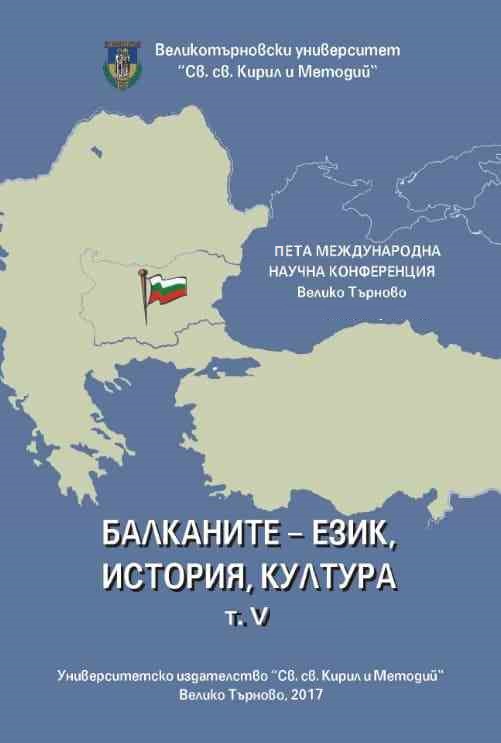
The problems and challenges which contemporary world faces set the leading idea of “sustainable development” as key aspect of geographical education. In the paper is used the well-known definition for sustainable development – development that meets the needs of the present without compromising the ability of future generations to meet their own needs. As a result of these tendencies, in geography didactics can be pointed out three very important concepts – environmental education, global learning and education for sustainable development. The concept “environmental education” is still quite disputable and in theoretical debates the key question is how it interacts with the term “education for sustainable development”. The authors of the paper share the opinion that according to contemporary conditions the “ecological education” should be the main step in the process of improvement of “education for sustainable development”. One of the current trends within “environmental education” is the establishment of successful environmental behavior which is influenced by variety of factors: systematic knowledge, the impact of social norms, confidence in control and etc. The concept “global study” is often defined as a “pedagogical reaction” to the conditions in which the global society evolves. The “global study” is commonly accepted as an open process of life-long learning which takes into consideration every aspect of sustainable development. Of course, the central place here is dedicated to the space and its different scales. Also the challenges the “global study” concept faces taking into account its increasing complexity that could raise certain problems in the educational process. The “education for sustainable development” is a large-scale and ambitious task of contemporary education. The main aim of such education is to develop, deepen, constantly update and implement competences which the individuals achieve in their dynamic environmentally friendly, oriented to economic vitality and social justice activity. What are the main consequences for the geographic education practice? Firstly, geographic education will be focused on global and essential for the future world development topics, interrelating ecological, social, economic and political aspects. Secondly, crucial role in implementation of the educational process will be played by pupils. This will lead to fact that pupils’ motivation and own will to be the most important preconditions for acquiring and improving different competences. Thirdly, the starting point will be always the authentic problematic situation which pupils should recognize, then analyze and evaluate and afterwards take decisions, plan and do the particular activities.
More...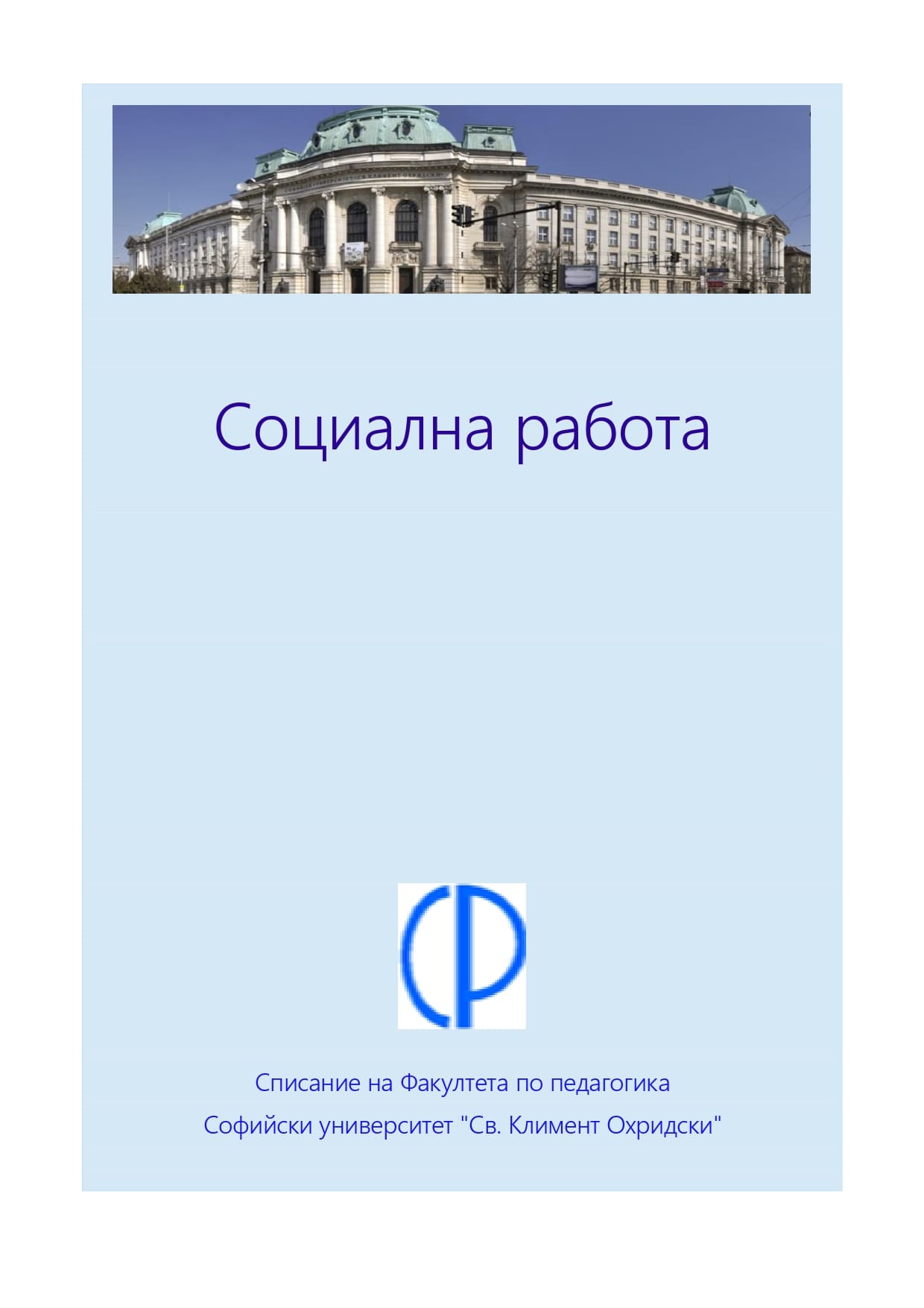
The article presents a model of inter-institutional cooperation between a municipality and a university in the Kingdom of the Netherlands aimed at supporting children with problem behavior and their families. The process of identifying the child's difficulties, referral to relevant specialists, assessment of needs and planning of support for the child and his family is presented. The article draws a parallel with the normative framework regulating social work in the Republic of Bulgaria, its practical application, the difficulties and opportunities for effective support for children and their families.
More...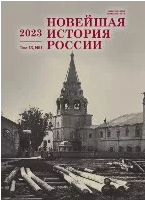
The famine in the USSR in the early 1930s as a historical fact has been the focus of scholarly journals over last 30 years; the media are especially active in Ukraine and Kazakhstan. The article analyzes historiography of famine in Kazakhstan by Kazakh and foreign (Russian, Ukrainian, American, Italian and German) scholars. A noticeable increase in special publication activity took place in the first half of the 1990s; a new surge of interest in the topic emerged in the 2010s, especially among Western European and American historians. In Kazakhstan, it continues to this day and is increasingly acquiring a political connotation. Some Kazakh historians interpret asharshylyk (famine in Kazakh) as famine, that is, following the Ukrainian interpretation of famine as genocide, ethnocide of the Kazakh people. Such publications are characterized by the neglect of available historical documents on the topic and a descriptive method of research, when the main emphasis is placed on suffering of the starving people. The article focuses on the analysis of three debatable issues: the time of the famine, losses in manpower, and mass resettlement of the population. Currently in historiography there are different interpretations of the chronological framework; the scale of the catastrophe; various estimations of the losses and population migration (migration, as a result of sedentarization and collectivization) in the Autonomous Republic under conditions of famine; there is no clear definition of the geography of famine. The article attributes it to different methodological approaches. The greatest results in the study of the topic can be obtained by means of approaches proposed by the Russian researcher P.A.Sorokin and the Irish scholar Komrak O’Grad. Further research is impossible without a thorough study of the already published documents and expanding the source base.
More...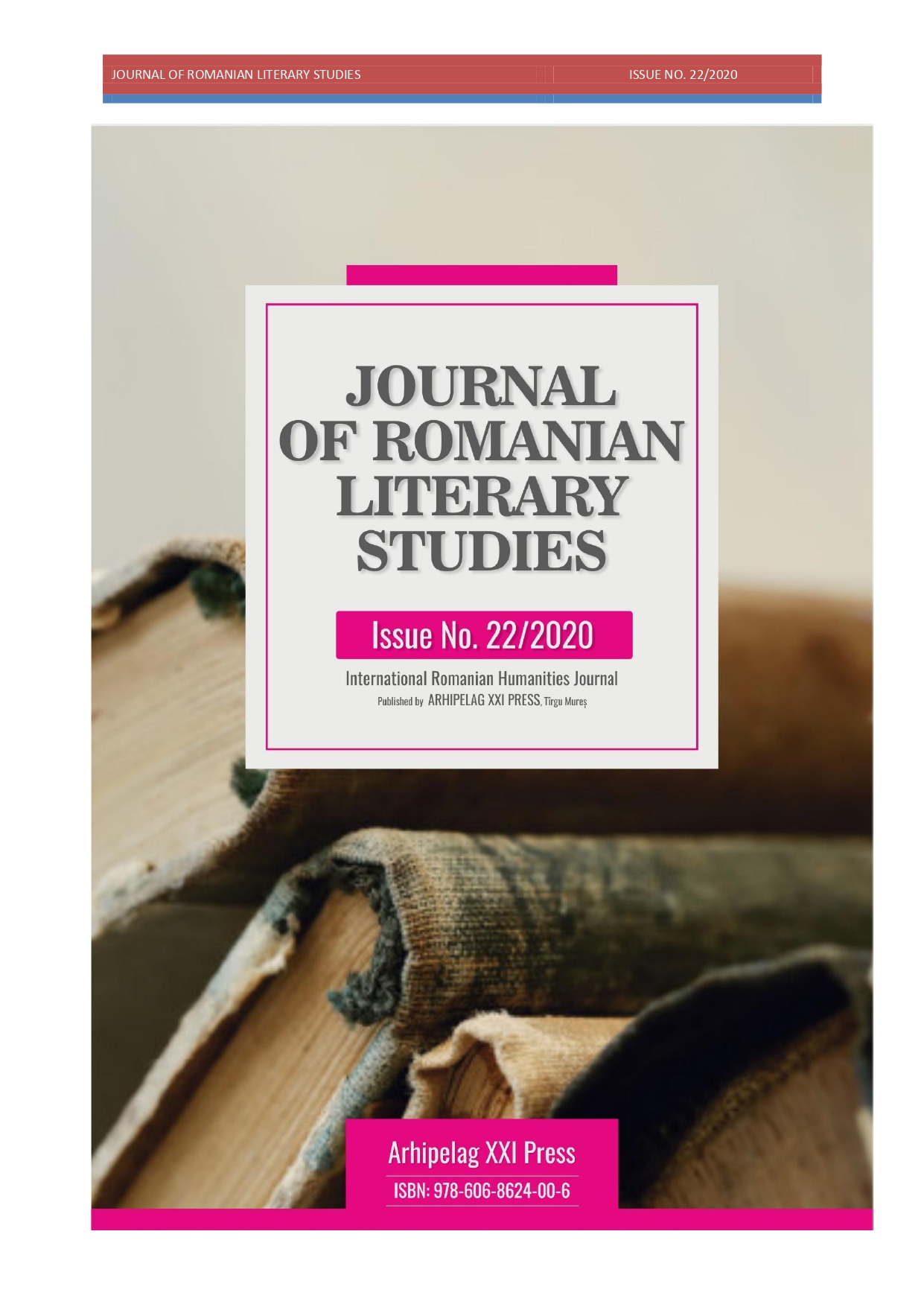
Practical experience has always been a source of inspiration for art, but speculative fiction authors look towards fringe areas, with their unexpected challenges and where (often tenebrous) imagination replaces facts. Going from human to posthuman (transhuman, to be more precise) is realized by means of cyborg-ing, a process that requires the replacement of certain biological components with mechanical or electronic ones, as they are considered more efficient. There are two directions: 1) a construction having the human body as a starting point, as it is alive par excellence; 2) the humanization of robots, as they acquire more human features, both physical and psychological. The purpose of this study is to show how elements of daily life are used in a scientific manner in the work of certain Romanian speculative fiction authors, particularly science fiction writers.
More...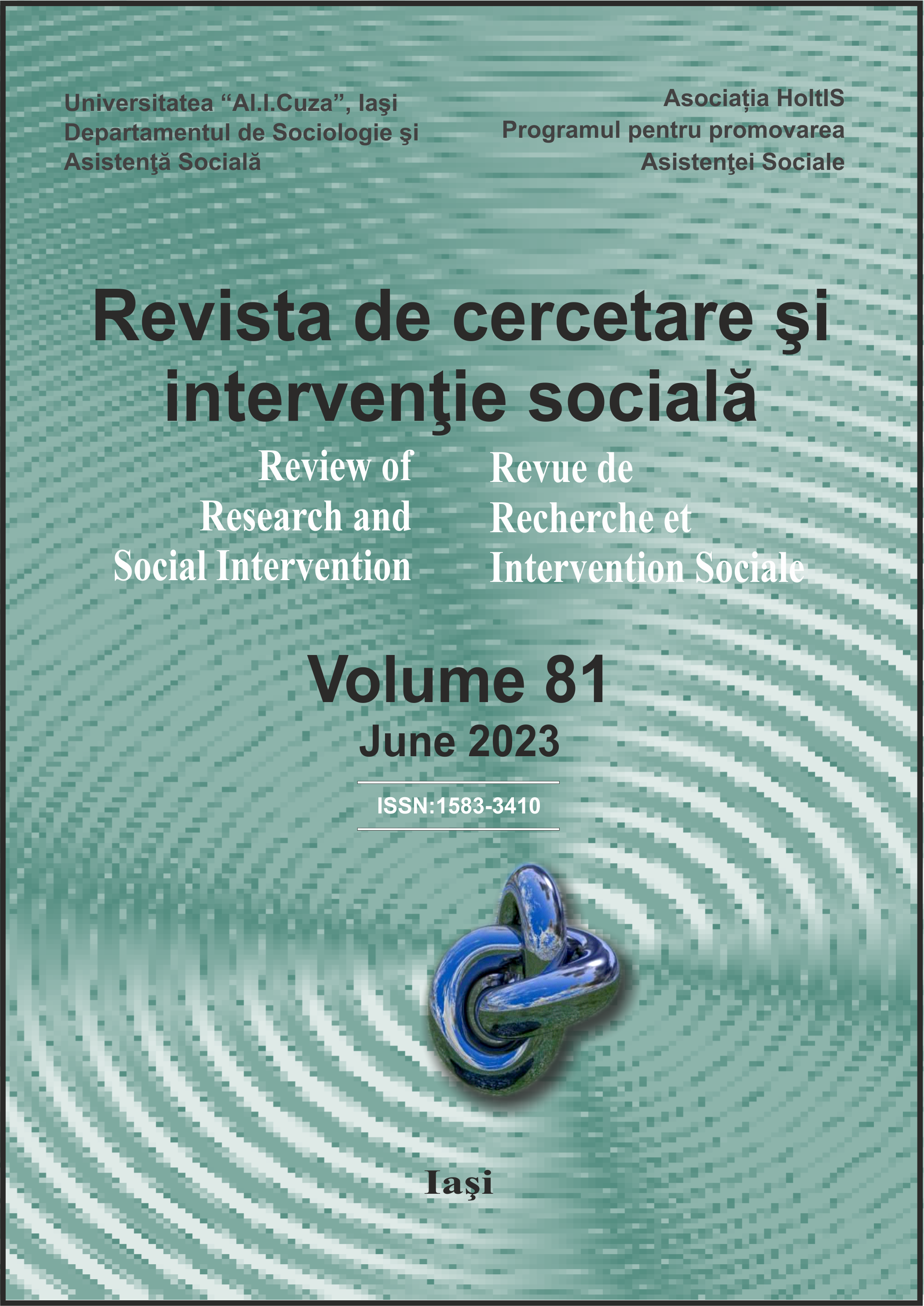
Gender ideology has long been a discussed issue in the field of social science, particularly gender studies. This study aims to explore the category of people's gender ideology toward their family and societal responsibilities in rural Bangladesh. Following a mixed-methods approach, this study interviewed 400 rural people (200 men and 200 women, between 18 and 50 years) and conducted two FGDs from eight cluster villages at Paba Upazila of Rajshahi District in Bangladesh. The result shows that people were liberal in the context of household chores and decisions (strongly agreed to share taking care of an infant, housekeeping/cooking, and freedom of choice in taking matrimonial decisions) but traditional and transitional in acceptance of male privilege and preferences for female privilege respectively. This study argues that patriarchal adherence is reflected in people’s gender ideology. Our study results suggest better awareness of rural people to transform their traditional gender ideology in the family and societal responsibilities in Bangladesh. These findings add new knowledge about the gender ideology of rural people and contribute as a prior field to promote liberal attitudes among both men and women in Bangladesh.
More...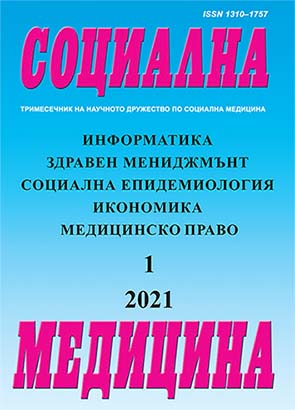
The life and creative path of a professor Dr. Peter Mullens is traced - brilliant parasitologist, malariologist, microbiolo- gist, chief army hygienist, professor, author of numerous publications. The focus is on the contribution of Prof. Mullens in the organization of the fight against malaria in the Bulgarian army during the First World War, his work on the successful elimination of malaria in the southern regions of the country, his efforts in organizing the experimental work of the Institute in Burgas.
More...